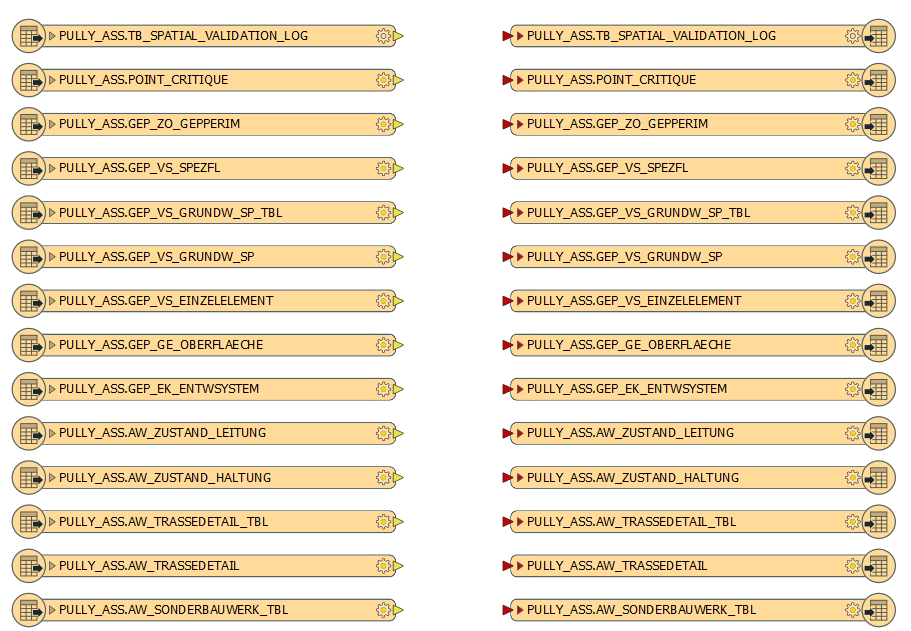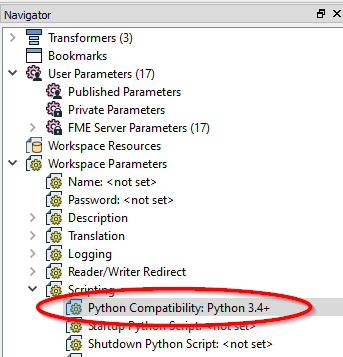Hi,
Is it possible to autoconnect or bulk connect readers to writers?

I could choose "copy from reader" option for attributes but I would be happy if I haven't to link my 139 tables by hand!
If you have a trick to easy lowercase all schema and table names it would be be so great!
Best answer by mark2atsafe
View original















